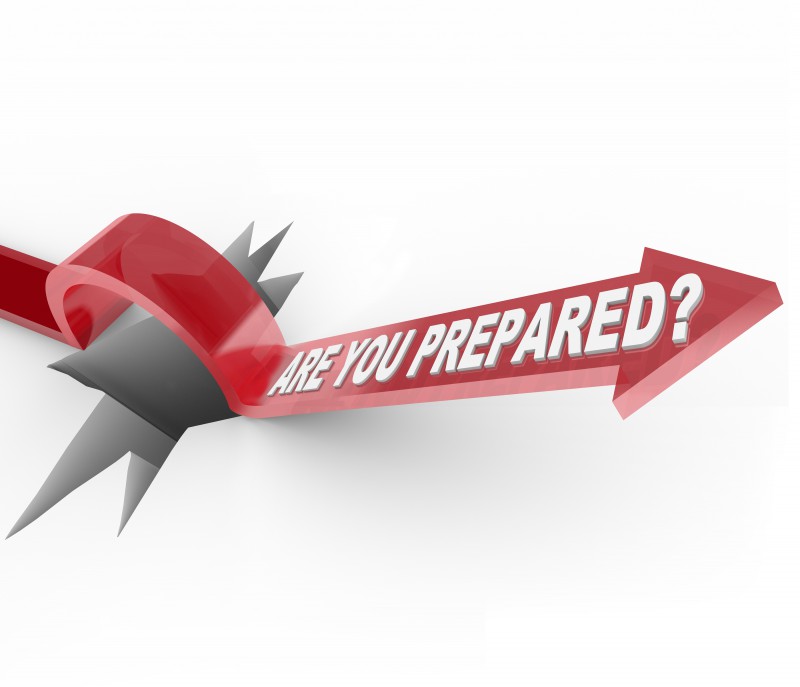Last week, in support of National Preparedness Month, we highlighted three steps that can help you, and those you care for, be more prepared in the event of an emergency or disaster. It is also important, however to take a look at additional steps that you can take to ensure personal preparedness in these types of situations. Being personally prepared will help reduce the fear and anxiety that accompanies emergencies, allowing you to better care for yourself and serve others.
Some steps that you can take to ensure your personal preparedness include:
Keep Your Cell Phone Charged – With technological advances, cell phones are now personal command centers. While there is no guarantee that you will have access to cell or internet service, there are still many ways that a smartphone can aid you in the event of an emergency, but only if it has battery power. Make it a habit to keep your phone at least half charged and purchase a few battery-powered USB chargers as a backup in case you are unable to access electricity.
Have an ICE Contact – Adding an In Case of Emergency, or ICE, contact to your phone allows someone to access contact information of people that you designate without having to unlock your phone, which would be critical if you were ever in distress or receiving medical attention but unable to communicate. While this post is about personal preparedness, it is worth noting that this is especially important to do for children and the elderly with cell phones as well. Instructions on how to program and ICE into any smartphone can be found here.
There’s an App for That – There are now plenty of mobile apps available that can turn your smartphone into a life-saving device, many of which are capable of fully functioning after download without any cell service, making them highly valuable in emergency situations. There is also the FEMA mobile app, which can do everything from allowing you to set reminders to test your smoke alarms, to providing safety tips for 16 different types of disasters, and locating open shelters in your area.
Create a Mobile Preparedness Center – Of course not all preparedness tips have to do with your cell phone, if you have a vehicle you can set it up to be a very powerful tool for providing aid during an emergency. Like your cell phone needs battery power, your vehicle needs gas to be the most helpful. Try to establish a habit of getting gas whenever your tank is half full, this little bit of extra effort could have an enormous impact when you need it most. Additionally, use an old backpack or duffel bag to store essential supplies like water, non-perishable food items, batteries, and a first aid kit. This way you will have a mobile preparedness center ready to go should you need it.
Be Aware of Your Surroundings – While not as obvious as having emergency supplies on hand, always being aware of your surroundings and taking note of the nearest exits can save crucial seconds if you were to ever be involved in a disaster or emergency. We tend to be so focused on our cell phones, or lost in thought, that we have very little situational awareness, which sets us up for vulnerability in safety-compromised situations. Being aware of surroundings allows you to act proactively and provides an additional defense barrier should the unexpected occur.
Have a Plan – Just as it is important for you to have a family plan in the event of an emergency, it is equally important to have thought through different disaster or emergency scenarios that could occur where you live. Whether it be a flood or hurricane, or even a terrorist act or an active shooter situation, knowing how you would want to react, and what steps you would take to ensure your personal safety and that of your loved ones, can help you to behave in the most efficient and effective manor if ever needed.
There is a lot to think about when it comes to disaster and emergency planning. It is easy to believe that these types of situations will never happen to you, but by preparing for the worst, you can not only you reduce the impact that a disaster or emergency has on you and your loved ones, but in some cases can help you to avoid it altogether.



Leave A Comment